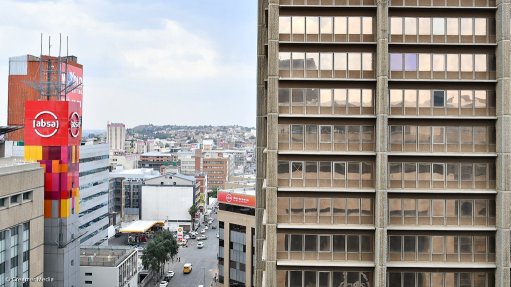Metals and engineering employers, trade unions sign landmark relationship agreement
Employers and trade unions who attended a Metal and Engineering Industries Bargaining Council (MEIBC) meeting on January 31 have signed a landmark process or relationship agreement, paving the way for the start of the 2024 round of wage and conditions of employment negotiations under a set of rules, guidelines and guiding principles that were previously absent.
South Africa’s metals and engineering sector, which is often used as a measure of the overall economy’s performance, is facing a bleak year ahead, said Steel and Engineering Industries Federation of Southern Africa (Seifsa) CEO Lucio Trentini.
“The last three years have been extremely challenging and the next 12 months look set to be no less challenging. The sector continues to face many risks and uncertainties such as the return of loadshedding, bottlenecks at Transnet’s sprawling logistics infrastructure and policy uncertainty ahead of the 2024 national and provincial elections,” he said in a statement on January 31.
He noted that confidence in South Africa was at a record low, and that possible metals and engineering sector recovery was crucial for the country’s economic prospects, as it had the potential to boost productivity gains for the economy, exports, investment, innovation and job creation.
He noted that the ever-increasing number of unemployed people should instill a sense of urgency around fixing the economy. Failing that, Trentini warned, South Africans ran the risk of "entrenching the kind of poverty that can upend the social compact that underpins our democracy".
“Times are tough in the country now. The news seems relentlessly depressing. Intense anger grows because so many of the problems closing businesses and killing jobs could have been avoided. Our disillusionment with the state of our country, industry and the future is normal, but once that’s registered, leaders across the board must find it within themselves to move the conversation beyond the doom loop,” Trentini urged.
He noted that, the heart of the newly signed relationship agreement between employers and unions was a new basis for industrial relations in South Africa, which by definition placed capital and labour permanently on opposite sides as adversaries.
“In collective bargaining, only when the parties find sufficient intersections of common inputs to a solution to be generated is a deal possible. In a traditionally adversarial setting and particularly when the going gets tough and faced with the prospect of negotiations completely unravelling, the side that takes the first step towards the middle is most likely to get the best deal,” Trentini said.
He noted that, this year, industry negotiations would take place against a landscape that was unprecedented. Bargaining partners were faced with a number of crises ranging from economic to socio-economic, and macro and micro economic scenarios that pointed to a sector that was showing very little prospect of real, meaningful, jobs-rich, inclusive and economic growth.
“Yet, in spite of all these challenges the parties have signaled their intent to engage one another at the negotiating table. As a precursor to the formal engagement process, the parties have framed in a signed agreement how they intend engaging and interacting with one another, Trentini explained.
Further, he noted that a pre-bargaining conference would be held to clearly understand the landscape in which the industry finds itself, with the aim of understanding its challenges, prior to each party returning to their respective constituencies for a mandate.
Parties this year have set themselves the target of settling within the currency of the current agreement, which lapses on June 30, which would be an unprecedented achievement.
“We have no option but to persevere. If we steadfastly stick to thinking we’re right and the other side is wrong, the centre won’t hold, and collective bargaining will collapse. No common purpose, no industrial peace, no progress,” Trentini said.
Article Enquiry
Email Article
Save Article
Feedback
To advertise email advertising@creamermedia.co.za or click here
Press Office
Announcements
What's On
Subscribe to improve your user experience...
Option 1 (equivalent of R125 a month):
Receive a weekly copy of Creamer Media's Engineering News & Mining Weekly magazine
(print copy for those in South Africa and e-magazine for those outside of South Africa)
Receive daily email newsletters
Access to full search results
Access archive of magazine back copies
Access to Projects in Progress
Access to ONE Research Report of your choice in PDF format
Option 2 (equivalent of R375 a month):
All benefits from Option 1
PLUS
Access to Creamer Media's Research Channel Africa for ALL Research Reports, in PDF format, on various industrial and mining sectors
including Electricity; Water; Energy Transition; Hydrogen; Roads, Rail and Ports; Coal; Gold; Platinum; Battery Metals; etc.
Already a subscriber?
Forgotten your password?
Receive weekly copy of Creamer Media's Engineering News & Mining Weekly magazine (print copy for those in South Africa and e-magazine for those outside of South Africa)
➕
Recieve daily email newsletters
➕
Access to full search results
➕
Access archive of magazine back copies
➕
Access to Projects in Progress
➕
Access to ONE Research Report of your choice in PDF format
RESEARCH CHANNEL AFRICA
R4500 (equivalent of R375 a month)
SUBSCRIBEAll benefits from Option 1
➕
Access to Creamer Media's Research Channel Africa for ALL Research Reports on various industrial and mining sectors, in PDF format, including on:
Electricity
➕
Water
➕
Energy Transition
➕
Hydrogen
➕
Roads, Rail and Ports
➕
Coal
➕
Gold
➕
Platinum
➕
Battery Metals
➕
etc.
Receive all benefits from Option 1 or Option 2 delivered to numerous people at your company
➕
Multiple User names and Passwords for simultaneous log-ins
➕
Intranet integration access to all in your organisation





















